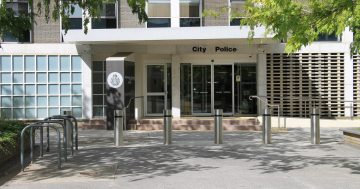
A costly conundrum: Are ambulance bills too high?
Imagine the following scenario: your neighbour calls a plumber to your house thinking that a pipe is leaking. You tell your neighbour, ‘I don’t have a leaking pipe’, but they call the plumber anyway. Shortly after, the plumber arrives from around the block. The plumber confirms what you told you neighbour—you don’t have a leak. Then drives off. The following day you get a bill in the mail for $650 from the plumber. Sure, you never called a plumber, and explicitly asked for him not to be called. Sure the plumber did nothing and confirmed that you didn’t need one in the first place. But you still have to pay $650. How would you react?
While this scenario with the plumber is made up—this is happening every week with ambulances in the ACT. Under ACT law, whenever there is an ambulance call out, regardless of whether you want one, and regardless of what they do, Canberrans have to pay a minimum of $650.
I know this, because it recently happened to me. When I sought to appeal the fee, I received the following from an emergency services spokesperson:
“What work the ambulance actually did, if any; unfortunately, due to privacy, we do not have records of the medical conditions that occurred. These records are held at the Ambulance Services Office.
Who called the ambulance and whether the patient consented (or explicitly said no); In relation to emergency ambulance attendance and charges, clause 201 (2) of the Emergencies Act 2004 provides that “A fee determined by a service provided to a person by an emergency service is payable by the person even if the person did not ask for, or consent to, the provision of the service.”
There is a lot to say about this.
As the scenario with the plumber illustrates, there may be no other line of work in the ACT where Canberrans have to stomach a bill regardless of the services rendered and regardless of whether they asked for any services. We might want to ask, ‘why do we make a special case that ambulances can charge like this?’ If this is an essential service, as medical services usually are, why isn’t the ACT government subsidising it?
The second issue is, why does it cost so much? On my back of the envelope calculation, $650 is roughly Australia’s weekly median take-home pay after tax. Even if we agree that ambulances should cost something – is this figure fair?
The third issue is the lack of any appeals process. There is only one circumstance under which you can have the ambulance bill waived: extreme financial hardship, which is difficult to prove and embarrassing for the person who has to prove it. Centrelink recipients can also get their fees lowered, but only in some circumstances.
Like everyone, I respect and appreciate the role that ambulances play in Canberra. And like everyone I am happy to pay for life-saving emergency transportation and services. But the question is why is the fee so high, and why is the process so rigid?
Have you ever had to foot an ambulance bill in the ACT before? Should the ACT be like Queensland and Tasmania and make ambulances free for local residents?





















